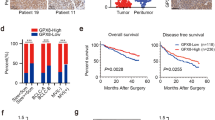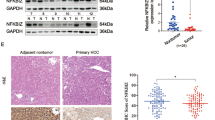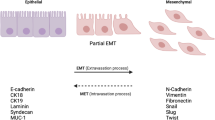Abstract
Gallbladder cancer (GBC) is an aggressive disease in which epithelial-mesenchymal transition (EMT) plays a critical role. Whether inhibition of mTOR effects via EMT reversal in GBC remains unclear. Using genetic and pharmacologic inhibitions of mTOR, we investigated the changes of EMT levels in GBC cells. Expressions of EMT related genes were also studied. Migration and invasion assays were carried out and in vivo tumour metastasis mouse models were established. Circulating tumour DNA was quantified. We used EMT index (ratio of Vimentin/Ecadherin expression) to profile EMT levels. We found that inhibition of mTOR using shRNAs and rapamycin inhibited EMT in GBC-SD gallbladder cancer cells. Inhibition of mTOR inhibited EMT in GBC-SD cells in TGF-β-dependent manner, which was contributed majorly by mTORC2 inhibition. Rapamycin decreased invasiveness and migration of GBC-SD cells in vitro and in vivo. We have in the current study shown that rapamycin diminishes the ability of invasion and migration of GBC via inhibition of TGF-β-dependent EMT. Our findings contribute to the understanding of the carcinogenesis of GBC.



Similar content being viewed by others
References
Gourgiotis S et al (2008) Gallbladder cancer. Am J Surg 196:252–264
Leal P et al (2013) Immunohistochemical expression of phospho-mTOR is associated with poor prognosis in patients with gallbladder adenocarcinoma. Arch Pathol Lab Med 137:552–557
de Aretxabala XA et al (1997) Curative resection in potentially resectable tumours of the gallbladder. Eur J Surg 163:419–426
de Aretxabala XA et al (2004) Laparoscopic cholecystectomy: its effect on the prognosis of patients with gallbladder cancer. World J Surg 28:544–547
Abahssain H et al (2010) Chemotherapy in gallbladder carcinoma. Presse Med 39:1238–1245
de Aretxabala X et al (2004) Neoadjuvant chemoradiotherapy in gallbladder cancer. Rev Med Chil 132:51–57
Rudi J (2002) Chemotherapy with gemcitabine in patients with gall-bladder carcinoma. Ann Oncol 13:807
Kalluri R, Weinberg RA (2009) The basics of epithelial–mesenchymal transition. J Clin Invest 119:1420–1428
Yun SJ, Kim WJ (2013) Role of the epithelial-mesenchymal transition in bladder cancer: from prognosis to therapeutic target. Korean J Urol 54:645–650
Leal P et al (2013) AKT/mTOR substrate P70S6K is frequently phosphorylated in gallbladder cancer tissue and cell lines. Onco Targets Ther 6:1373–1384
Wu Q et al (2007) Therapeutic effect of rapamycin on gallbladder cancer in a transgenic mouse model. Cancer Res 67:3794–3800
Ding G et al (2013) Combination of rapamycin, CI-1040, and 17-AAG inhibits metastatic capacity of prostate cancer via Slug inhibition. PLoS ONE 8:e77400
Mikaelian I et al (2013) Genetic and pharmacologic inhibition of mTORC1 promotes EMT by a TGF-beta-independent mechanism. Cancer Res 73:6621–6631
Wen H et al (2013) Med19 promotes bone metastasis and invasiveness of bladder urothelial carcinoma via bone morphogenetic protein 2. Ann Diagn Pathol 17:259–264
Gulhati P et al (2011) mTORC1 and mTORC2 regulate EMT, motility, and metastasis of colorectal cancer via RhoA and Rac1 signaling pathways. Cancer Res 71:3246–3256
Liu L et al (2006) Rapamycin inhibits cell motility by suppression of mTOR-mediated S6K1 and 4E-BP1 pathways. Oncogene 25:7029–7040
Jacinto E et al (2004) Mammalian TOR complex 2 controls the actin cytoskeleton and is rapamycin insensitive. Nat Cell Biol 6:1122–1128
Moss SC, Lightell DJ Jr, Marx SO, Marks AR, Woods TC (2010) Rapamycin regulates endothelial cell migration through regulation of the cyclin-dependent kinase inhibitor p27Kip1. J Biol Chem 285:11991–11997
Lamouille S, Connolly E, Smyth JW, Akhurst RJ, Derynck R (2012) TGF-beta-induced activation of mTOR complex 2 drives epithelial-mesenchymal transition and cell invasion. J Cell Sci 125:1259–1273
Acknowledgments
The authors declare no conflict of interest. This study is supported in part by the Science and Technology Commission of Shanghai Municipality, China (No. 11nm0503900).
Author information
Authors and Affiliations
Corresponding authors
Additional information
Huajie Zong and Baobing Yin have contributed equally.
Rights and permissions
About this article
Cite this article
Zong, H., Yin, B., Zhou, H. et al. Inhibition of mTOR pathway attenuates migration and invasion of gallbladder cancer via EMT inhibition. Mol Biol Rep 41, 4507–4512 (2014). https://doi.org/10.1007/s11033-014-3321-4
Received:
Accepted:
Published:
Issue Date:
DOI: https://doi.org/10.1007/s11033-014-3321-4




